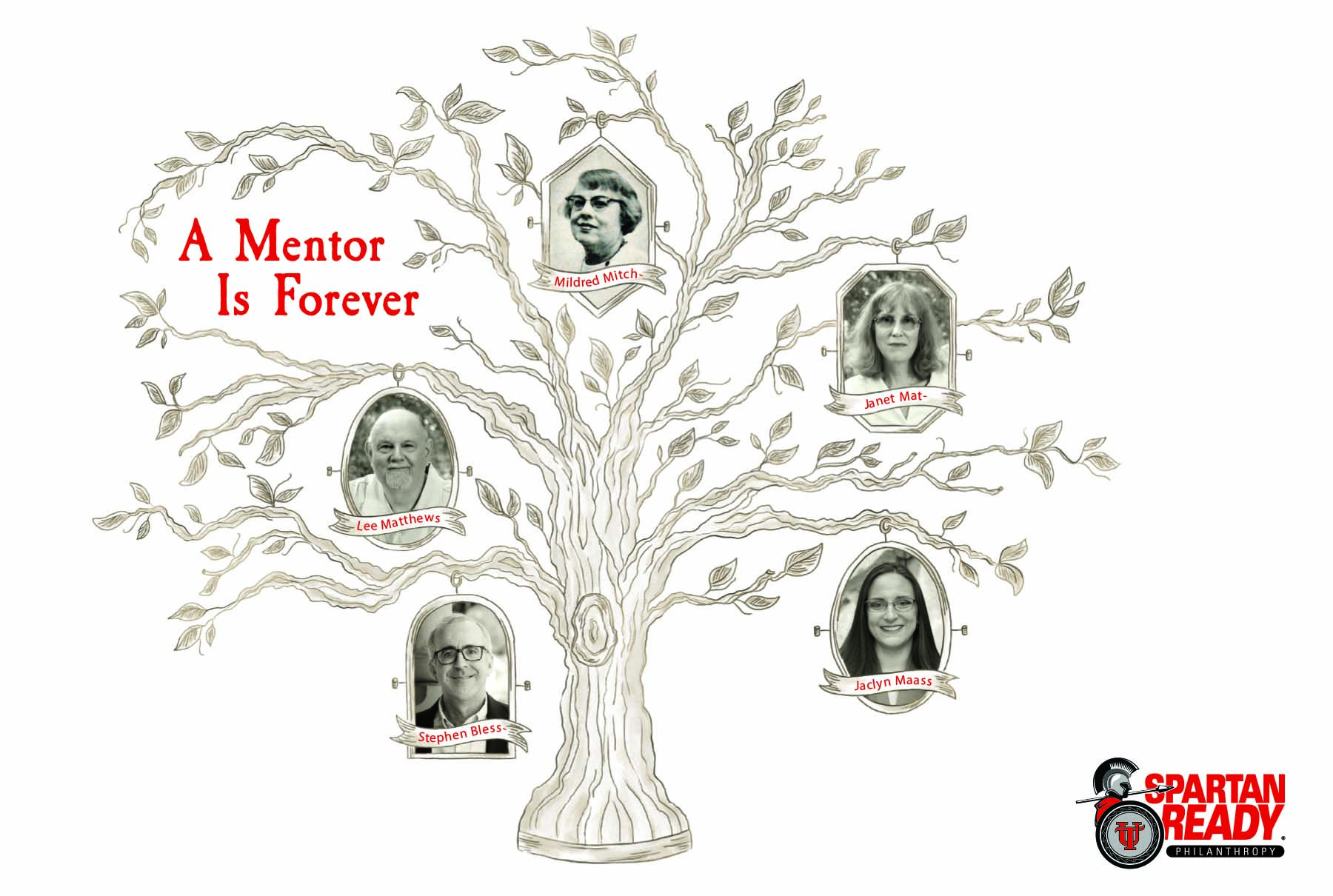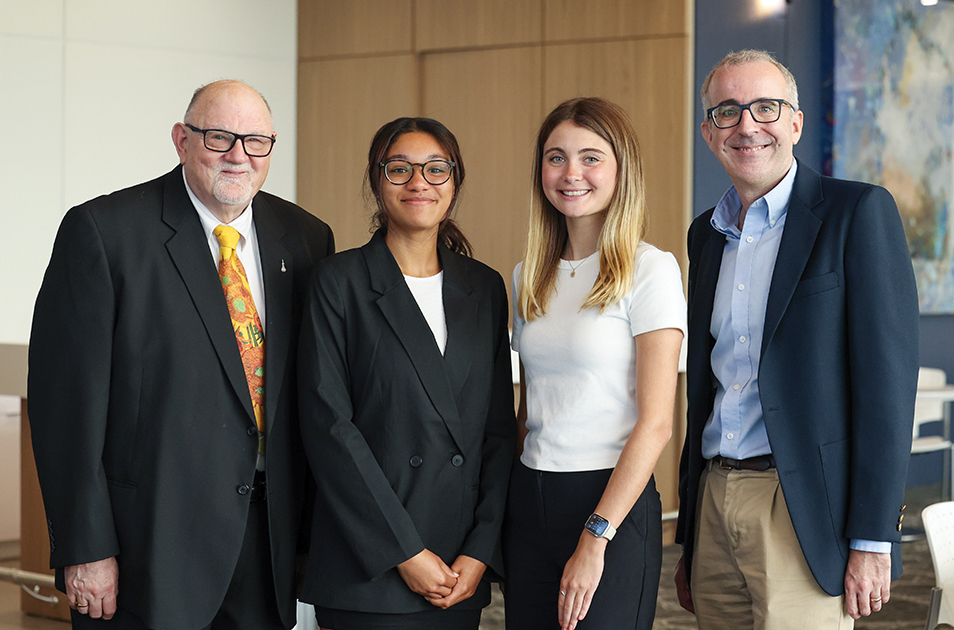Contact us
401 W. Kennedy Blvd.
Tampa, FL 33606-13490
(813) 253-3333
A culture of care and attention is behind the new Janet R. Matthews Ph.D. Endowed Chair in Psychology

When Lee Matthews ’67 is asked to describe his late wife, Janet, the first words he speaks are, “Oh, wow.”

The Drs. Janet and Lee Matthews Psychology Award is given to outstanding psychology students. Dhani Deveaux ’23, second from left, won for 2022-2023, and Stacey Hoffmeister ’25, third from left, received the award for the 2023-2024 school year. Hoffmeister credits her mentor, Associate Professor Kimberly Cummings, with helping her to secure an internship in human resources this summer. Also pictured: Lee Matthews ’67, left, and Professor Stephen Blessing. Photo by Jessica Leigh
More UT News